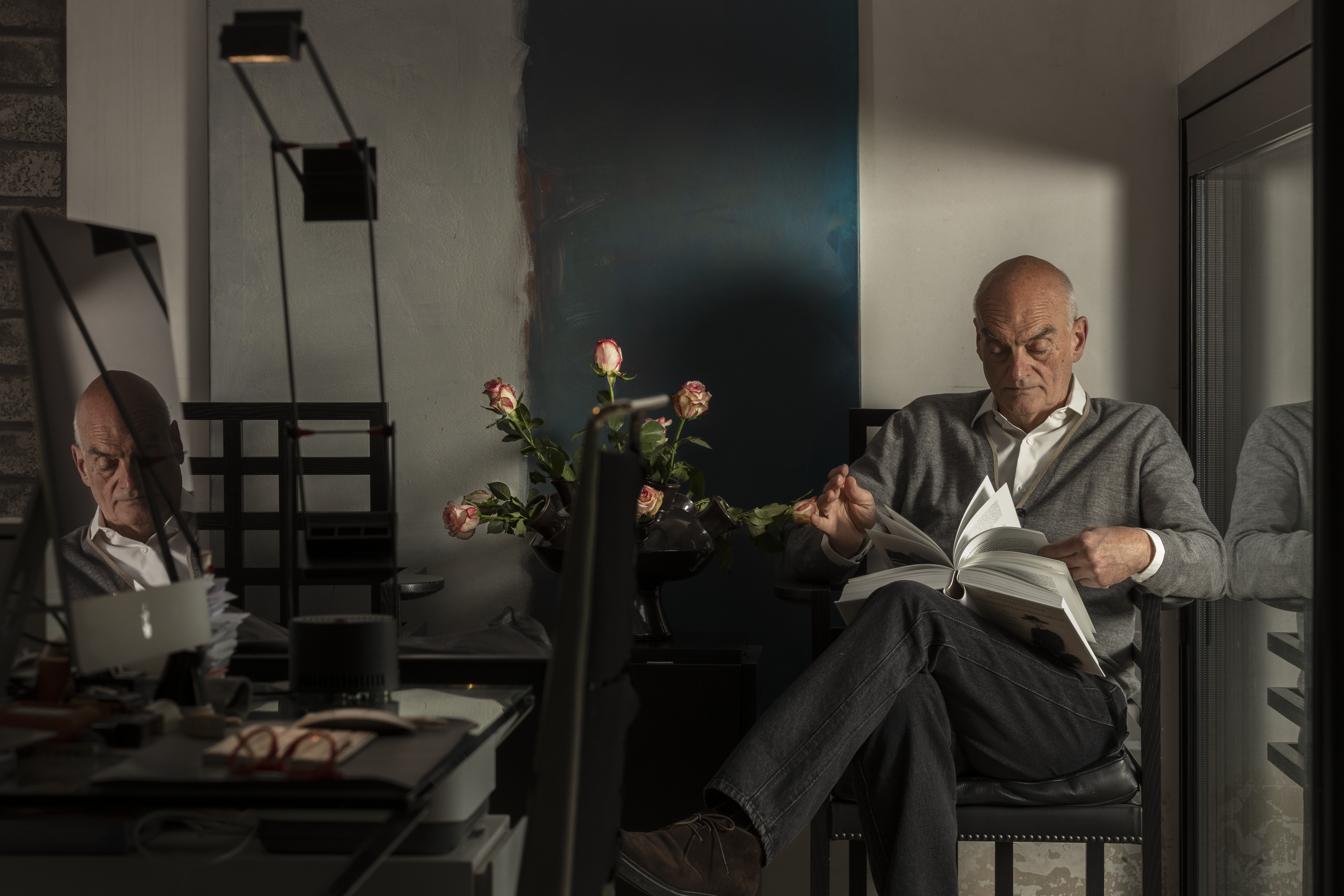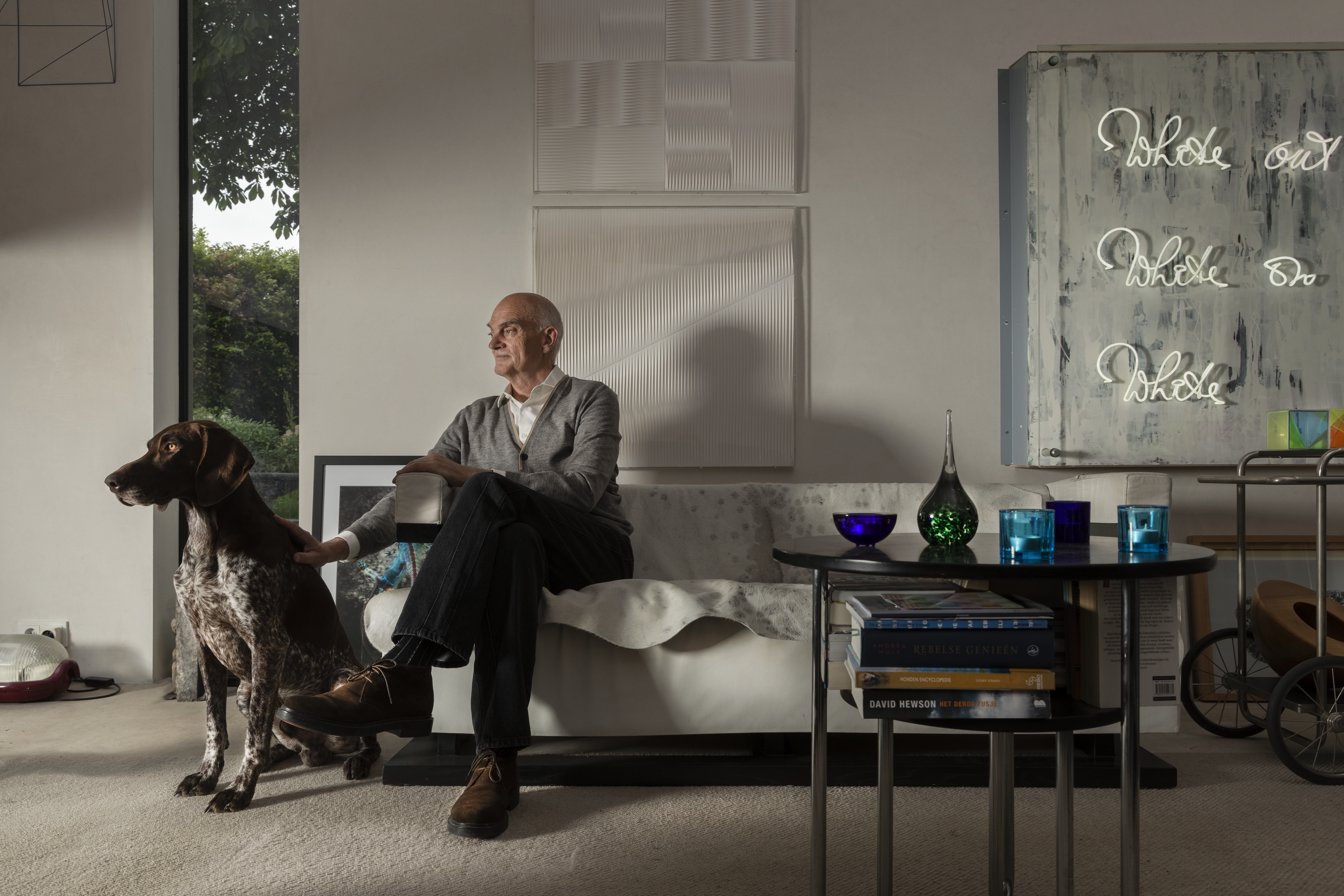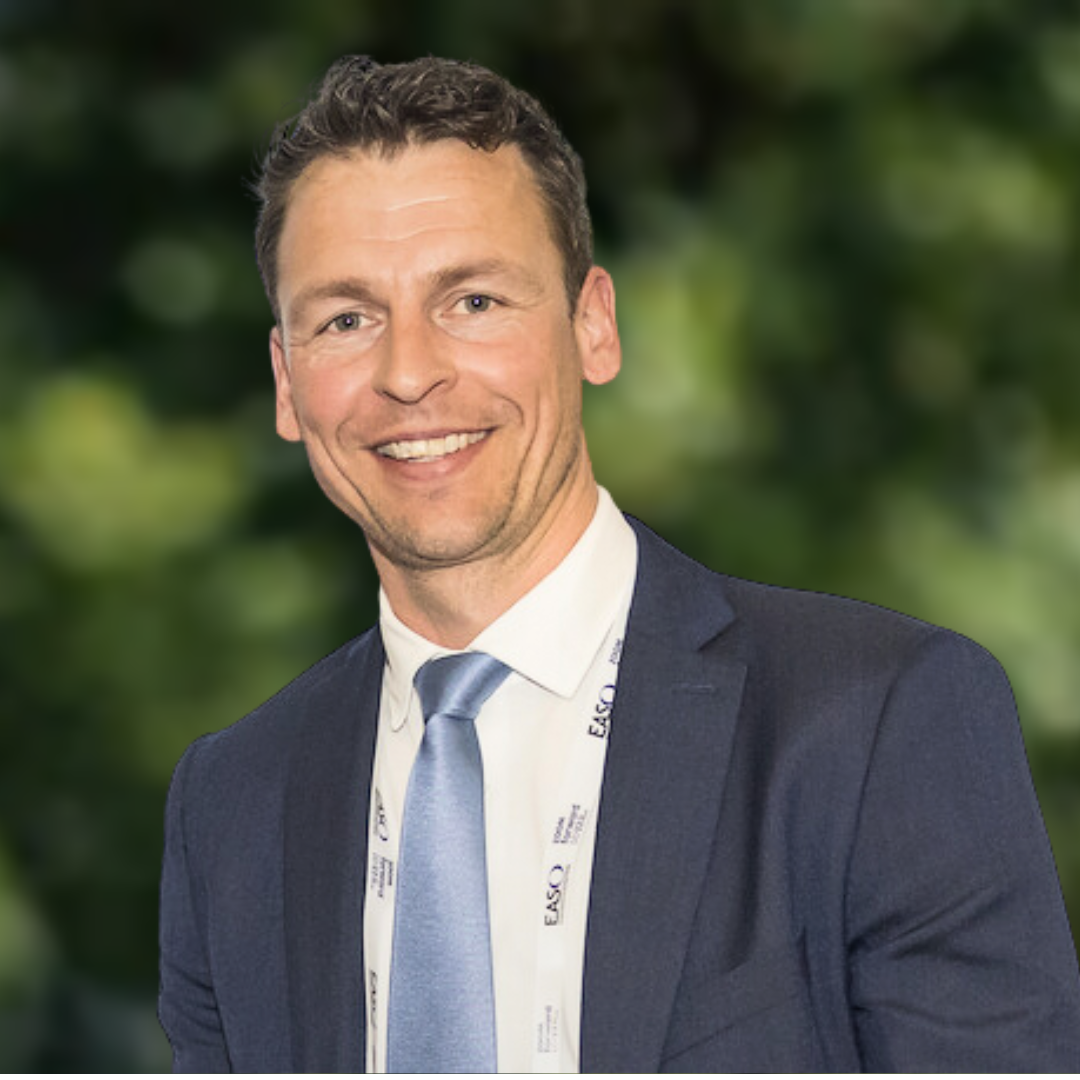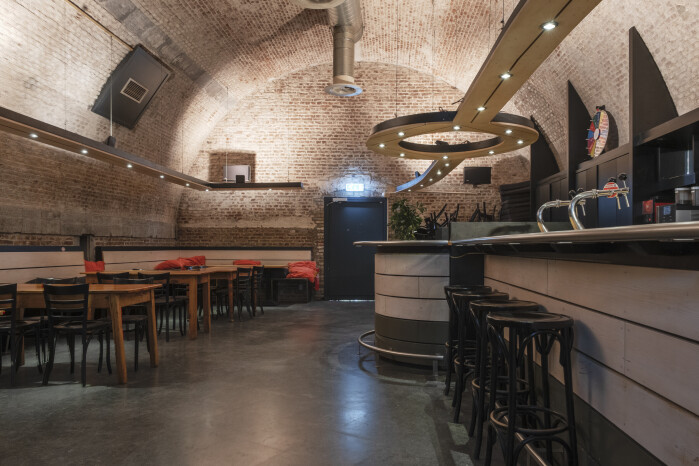Not one for the spotlight
Nick Bos describes himself as “a fairly rational person.” When he so much as mentions words like pleasure, love or lonely, he immediately corrects himself: “Well, love is a big word. Let’s just say my affinity with the university blossomed at UM.” In Maastricht, the man who initially aspired to an academic career discovered that his real gift lay in facilitating other academics. After 25 years at UM, Nick Bos is now set to retire.
“Don’t make it too much about me”, he repeats towards the end of the interview. “I want to emphasise that when I talk about my work, I’m referring to the teams I worked with.” Bos is not one for the spotlight. He admires the warmth of the current university president, Rianne Letschert, which enables her to connect with people quickly. “An extraordinary trait. I need more time to build rapport. But I usually show up to things well-prepared, and if you make an agreement with me, I’ll stick to it.”
Cyberhack
He is the kind of person who “attaches importance to facts,” he says. He is referring to the cyberhack that hit UM shortly before Christmas 2019. Bos headed the Crisis Management Team (CMT), and was responsible for the decision not to communicate with the media as long as the cause of the hack remained unclear. A great deal of solidarity was called for; many employees continued working with the CMT over the holidays to ensure that teaching could resume a few weeks later. It was one of the most intense periods of his career, and in a strange way, also a highlight. “The feelings were very mixed, yes. Naturally you feel embarrassed for having been hacked. But we received a lot of recognition for how we handled the aftermath, both as a university and as individual employees.”
He never felt anger over the attack. “I’m very solution oriented, and at times like that I go into a kind of action mode. What made me well-suited to leading the CMT was that I always remained calm. I might be raging on the inside, but I don’t show it. I’m willing to take decisions at the risk of them later turning out to be wrong. It helped that I knew the organisation inside out.”
PhD research
Hardly a university committee exists with which Bos is not personally acquainted. He studied history at Utrecht University, where he also worked as a student assistant. Thanks to a grant from what is now the NWO, he did his PhD research on major social transactions in 19th century Limburg. It didn’t hurt that Bos hails from the region himself. He was born in Amstenrade as the youngest of three boys and attended high school in Hoensbroek, where he met his current wife Marly at the age of 14. “We both repeated Year 9. That’s where it all started.”
In 1985, the couple moved back to Limburg for his PhD research. He struggled with the fact that his dissertation was still unfinished after four and a half years. “I’d worked hard and published, but that was often the case in those days. Many people applied for benefits just so they could complete their dissertation, but I didn’t want that. It’s possible I suffered some degree of social deprivation. I was in the archives, I was writing at home; it was ... well, lonely isn’t the right word, but I didn’t want the situation to drag on. It might have made me more of an academic, but that offered no guarantees for the future.”
Text continues below the photo.

Nick Bos studied history at Utrecht University and obtained his PhD in 1995. From 1990 to 1999, he worked in Utrecht as an assistant professor, study adviser, head of Education and Student Affairs, and manager/administrator of the Education Institute for Media and Re-/Presentation. In 1999, he traded his academic aspirations for an appointment as head of the Student Services Centre at Maastricht University. He served as general director for 15 years before being appointed vice president of the university. After a decade in this role, he is now retiring.

Change of direction
Applying for jobs, Bos was no stranger to rejection. He worked as a freelancer, including as a writer of commemorative books, and held a junior academic role in Utrecht. “But those were awful contracts; I saw with my own eyes how poorly an organisation can treat its employees.” Eventually, two events led him to abandon his academic career. His eldest daughter was born in 1993, which left him wanting a more stable income. And a few years later, he applied for a professorship with a job description that could have been written just for him. “I was the second-choice candidate, rightly so, but it made me question whether I wanted to spend the rest of my life hoping for another chance. I didn’t want to end up bitter. I decided to stay in academia, but figured I might be better suited to facilitating others in their research.”
He took a job as a study adviser in Utrecht while completing his dissertation, and rose to head of Education and Student Affairs at the Faculty of Arts. The commute from Limburg took four hours a day. “Our youngest daughter turned out to be a crier, so I was lucky to be able to nap on the train.”
Freedom
In 1999, he was pointed to a vacancy in Maastricht: head of what was to become the Student Services Centre. “I wasn’t looking for a job, and Maastricht wasn’t highly regarded in my network because of its Problem-Based Learning system. So I’d never even considered the possibility.” But it was a good position, and closer to Brunssum, where he lives to this day. The interviews went well and the switch to Maastricht marked the beginning of an illustrious career. He soon rose to the highest administrative position: general director of the university. “In Maastricht, my love for the university finally really blossomed. Well, love is a big word. Let’s say my affinity. I learnt that an institution like this can really make a difference for its surroundings. For me, a university is a collection of passionate, talented people. They might be able to earn more elsewhere, yet they choose to work here. The freedom also appeals to me: that if you have a good idea, you can pursue it and are less likely to get bogged down in bureaucracy and hierarchy.”
He continued to appreciate that freedom even as vice president of the university, his role for the past decade. His advocacy of the Brightlands campuses over the past 15 years included both a management side as well as a content component. “I’m very grateful for the space my colleagues on the board have given me.” He also reflects with satisfaction on the growth of the student body, which tripled in 25 years without harming the financial health of the institution. Not to mention the establishment of the Faculty of Science and Engineering. In fact, as far as Bos is concerned, there are too many successes to mention. “Something is there. It would have been built without me too, but it’s nice to have played an important role.”
Pleasure
It soothes the pain of retirement somewhat, though naturally he wouldn’t go so far as to call it pain. Too much of a big word. “After 10 years, it’s only right for someone else to come in with a new focus. On a personal level, I found it difficult to accept. I don’t feel too old for this job yet. But through many conversations, mainly with myself, I’ve been able to rationalise it.”
A two-hour hike with his dog Borre every morning has also helped. As a child, Bos had a German Shorthaired Pointer. Four years ago, he and his wife acquired another dog of the same breed. They chose Borre for his gentle and enterprising character—and, admittedly, his looks. “Marly and I are aesthetically inclined,” he says. She is an artist; they have been buying art together for 40 years. And when she cooks, which Bos doesn’t do himself, it is a feast for the eye as well as the taste buds. “She’s better at enjoying things than I am. It’s not one of my strengths; I can never fully give myself over to pleasure. That’s something I’ve had my whole life. I know what I like, but I always see the downside, too.” That being said, he looks back on his 25 years at UM with satisfaction. “Also gratitude. It’s a wonderful institution.”
Text: Femke Kools
Photography: Arjen Schmitz
Also read
-
A study conducted by the European Association for the Study of Obesity led by Prof. Gijs Goossens of Maastricht UMC+ published today in Nature Medicine.
-
Maastricht University takes care of many distinctive buildings and art works that we all know. By giving them a new purpose, we preserve these icons and give them a new meaning, making them the vibrant heart of a bustling city.
Did you know that these buildings and art works also provide access to...
-
Two Law PhD candidates of the Maastricht Faculty received awards for their doctoral theses during the 21st International Congress of the International Association of the Penal Law in Paris.


